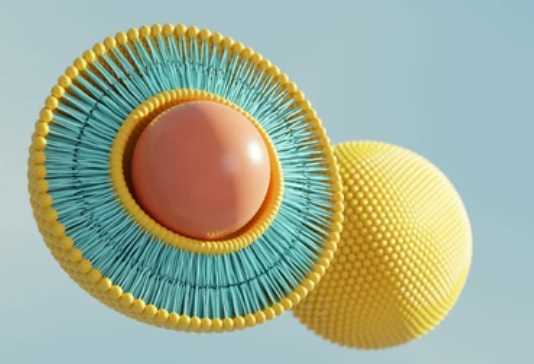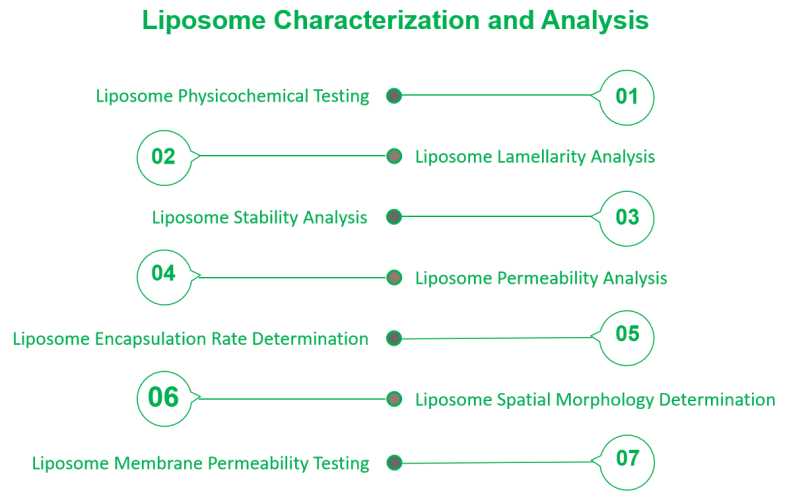Liposomes are microscopic spherical vesicles composed of internal aqueous compartments surrounded by lipid bilayers with membranes formed by natural or synthetic lipids. Liposomes can be monolayered or multilayered, with diameters ranging from nanometers to micrometers. The formation of liposomes is a spontaneous process that occurs when phospholipids or other amphiphilic molecules with specific properties are hydrated. Phospholipids form shells due to the hydrophobic action of acyl chains in aqueous media. This state is thermodynamically favorable and can be enhanced by hydrogen bonding, van der Waals forces, or other electrostatic interactions.

From an application point of view, it is essential to characterize the prepared liposomes. Physical and chemical parameters need to be monitored to ensure that the liposomes are prepared reproducibly and have the desired functionality. The main characteristics of liposomes are average size and size distribution, shape and polydispersity; surface charge; encapsulation efficiency; lamellarity and stability, etc. It is essential to know the exact size distribution of liposome suspensions, as this parameter significantly affects the function of liposomes in vivo.
Based on Lifeasible's extensive experience in the liposome industry and the availability of various instrumentation and technical tools to characterize liposomes, we are currently able to provide our customers with the following services.

Physicochemical testing of liposomes includes Turbidity Measurement, Zeta Potential Measurement, Component Testing, Size Analysis, etc. We provide testing equipment such as turbidity testers, zeta potential meters, spectrophotometers, electron microscopes, etc.
The lamellarity of liposomes affects the encapsulation efficiency and the application of encapsulated small molecules. We usually perform the test using 31P NMR, the most accurate and direct method for lamellarity determination. Alternatively, small-angle X-ray scattering can measure the electron density distribution of bilayers in liposomes and the exact location of proteins in liposomes. It can also determine the average lamellarity of liposomes in dispersions.
Stability studies are performed by exposing liposomes to different environments (temperature, light, pH) and analyzing the chemical stability of liposomes by testing particle size, zeta potential, etc. The physicochemical stability tests of liposomes help to determine the appropriate storage conditions and retesting period.
The ability to test liposome permeability by fluorescence techniques, including fluorescence spectroscopy using self-exploding probes, dye pairs or lanthanide cation/ligand pairs, and confocal fluorescence microscopy using single or multiple fluorophores.
Methods used for encapsulation efficiency determination can be spectrophotometric, fluorescence spectroscopy, enzymatic assays, gel electrophoresis, field flow graded separation or chromatographic methods. The choice of method is determined by the type of small molecule to be encapsulated.
Provides liposome spatial morphology services to visualize and image liposome systems at the molecular level. Spatial morphology analysis provides liposome data, including size distribution, bilayer organization, and vesicle shape.
Both liposome electrokinetic chromatography (LEKC) and liposome capillary column chromatography (ILCCC) are used to study the interaction of small molecules with simulated membranes, thereby assessing the membrane permeability of small molecules.
If you are interested in our services, or if the service you want is not listed, please feel free to contact us, and we will get back to you as soon as possible.